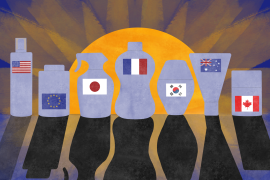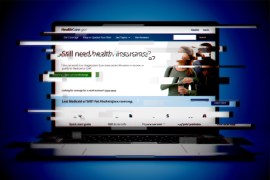Longer Looks: Data At Hospitals; Autopsies; Disrupting Health Care
Each week, KHN's Shefali Luthra finds interesting reads from around the Web.
The New York Times:
On The Case At Mount Sinai, It’s Dr. Data
Jeffrey Hammerbacher is a number cruncher — a Harvard math major who went from a job as a Wall Street quant to a key role at Facebook to a founder of a successful data start-up. But five years ago, he was given a diagnosis of bipolar disorder, a crisis that fueled in him a fierce curiosity in medicine — about how the body and brain work and why they sometimes fail. The more he read and talked to experts, the more he became convinced that medicine needed people like him: skilled practitioners of data science who could guide scientific discovery and decision-making. (Steve Lohr, 3/7)
The Washington Post:
In Sickness And Health: Wife’s Serious Illness Increases Chance Of Divorce Later In Life; Husband’s Doesn’t
It's well-established that, with some exceptions, married people live longer and healthier lives than unmarried people. But until recently, researchers hadn't conducted a very thorough examination of how well a marriage survives when one partner becomes seriously ill. The results of that effort probably won't cheer anyone -- least of all women. When a wife falls ill, there is a 6 percent greater chance that a later-life marriage will end in divorce than there is if she remains healthy. When a husband becomes sick, there is no impact on the odds that the couple will divorce. (Lenny Bernstein, 3/6)
The Wall Street Journal:
What Autopsies Can Teach
Medical mysteries lurk in every family, yet the autopsies that could reveal them have become increasingly rare. Although coroners and medical examiners still investigate suspicious deaths, fewer than 5% of people who die in hospitals are autopsied today, down from 50% in the 1960s, according to government surveys. The decline in autopsies has slowed scientific advances in diseases including cancer, dementia and heart disease, researchers say. It also has left some surviving families in the dark about medical issues that could affect their own health. (Melinda Beck, 3/9)
The Economist:
Shock Treatment
The best-known objective of America’s Affordable Care Act of 2010—commonly known as Obamacare—was to ensure that the 40m-plus Americans who lacked health insurance could get it. Less widely appreciated, but at least as important, are the incentives and penalties the law introduced to make the country’s hideously expensive and poorly performing health services safer and more efficient. Economists are debating how much credit Obamacare should get for a recent moderation in the growth of health costs, and for a fall in the number of patients having to be readmitted to hospital. Whatever the answer, many companies see the disruption unleashed by the reforms as the business opportunity of a lifetime. (3/7)
Aeon:
Method And Madness
Theatre provides a rare stimulus for psychotic, schizophrenic and depressed patients, giving them an opportunity to communicate and interact constructively with others. “We are all actors; we take on our identity, we take on our culture,” [Vitor] Pordeus says. Released from their fixed roles as catatonic, belligerent or withdrawn patients, his actors – Pordeus calls them clients rather than patients – are free to don different masks as characters from Shakespeare, and to live out a different reality for a few hours. In the safe, performative setting, new things can be said or tried out. As the circle moves round, it breaks at times for people to hug each other, for spats to be heard then ironed out, and for each player to start new chants which the others then follow. (Beth McLoughlin, 3/5)
The Weekly Standard:
Do I Dare To Eat An Egg?
Egg consumption declined by over 30 percent when the government put them on its dietary blacklist. People have to eat, so they substituted other things for eggs. Things that helped to make them fat. The eggs they did not eat would not, it turns out, have clogged their arteries and killed them. The stuff they substituted for those eggs, however, might well have caused them to suffer from type 2 diabetes and worse. (Geoffrey Norman, 3/16)






